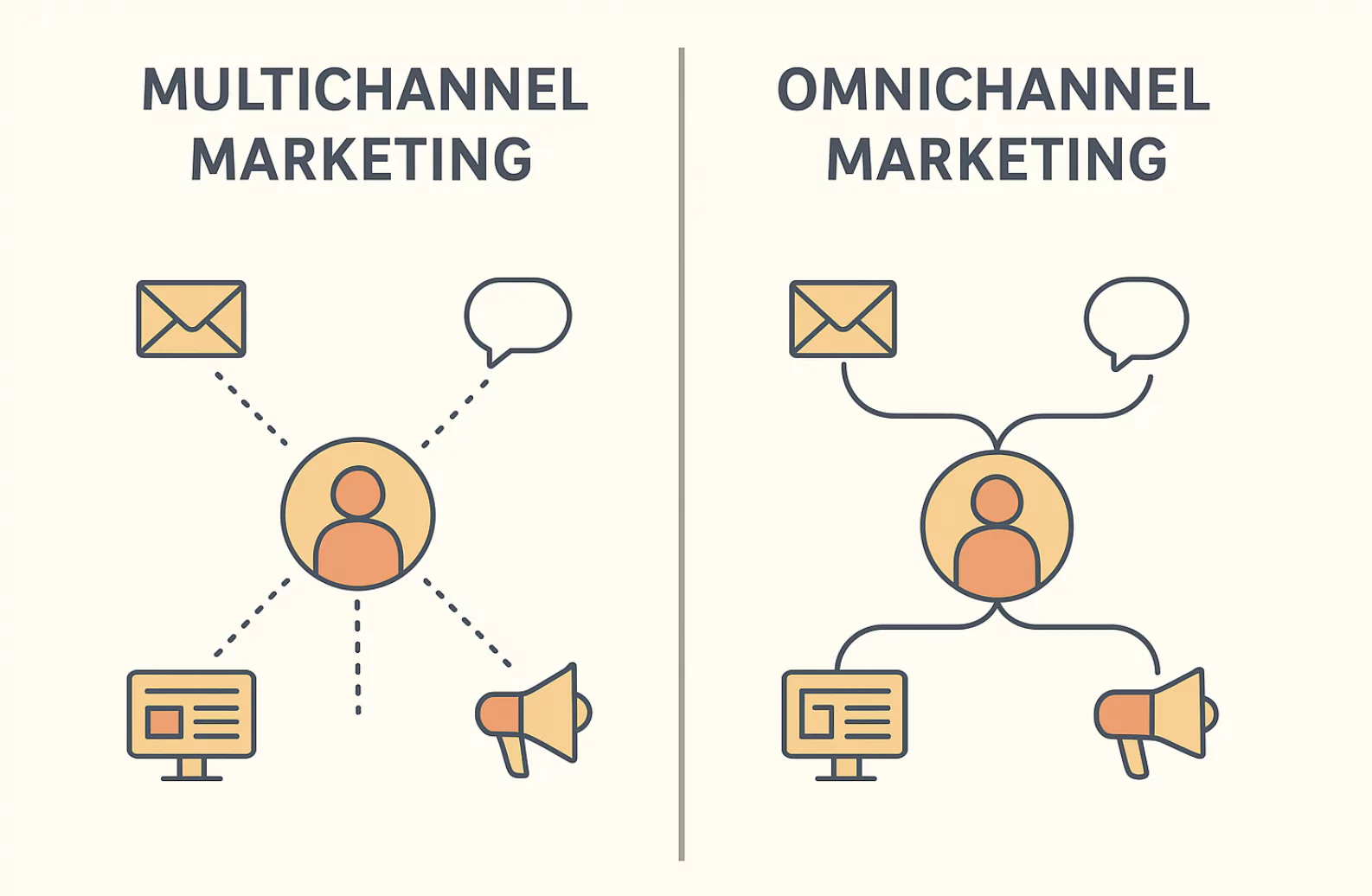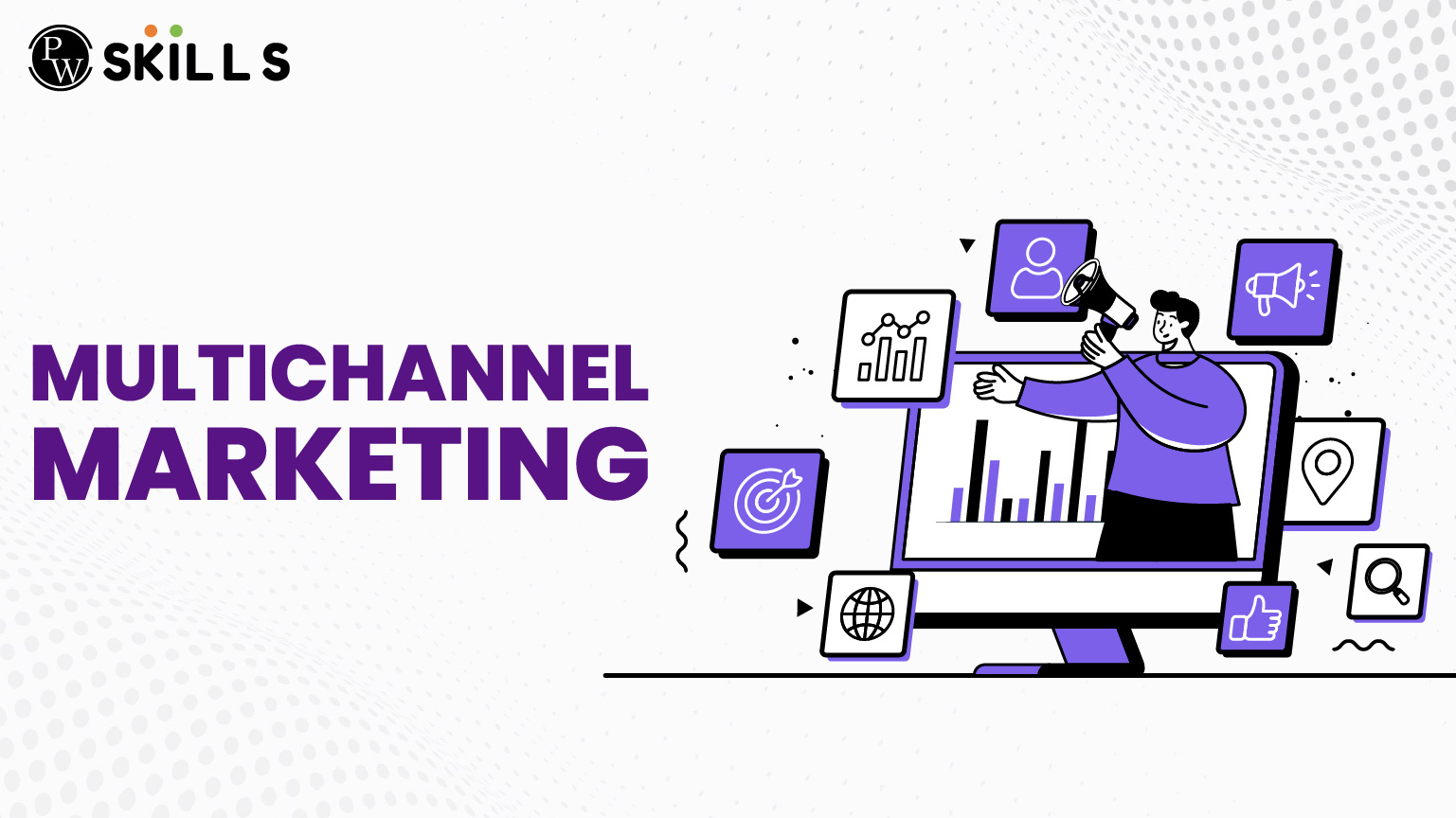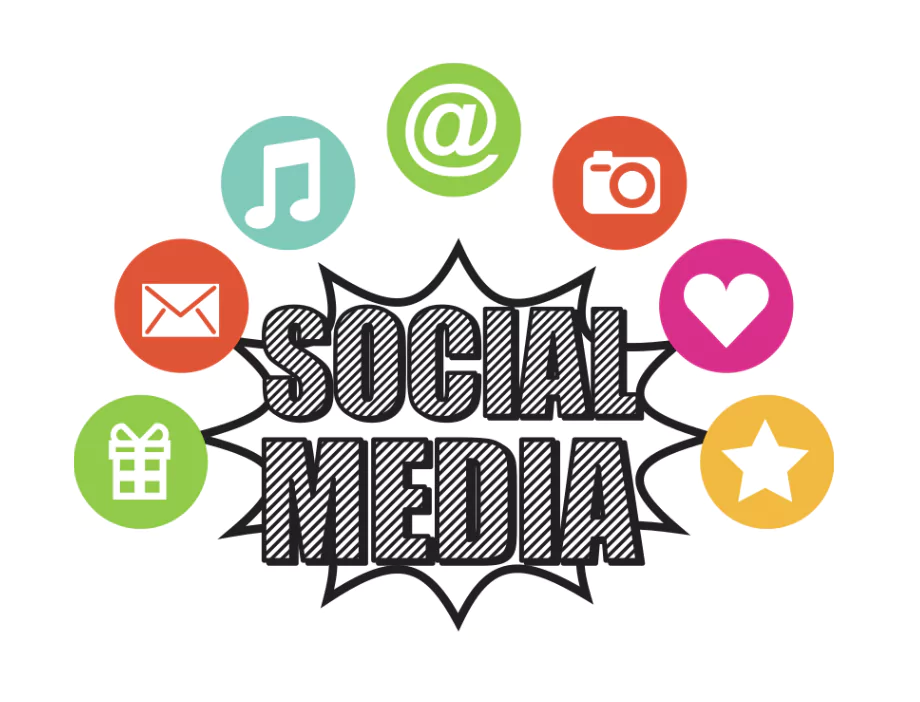Multichannel marketing opens the gate to interact with potential customers across many channels that might include email, print, retail store, website, event, SMS, or word of mouth. Single channel marketing might not be sufficient, as customer shopping behaviors and interactions with different channels are different.
Multichannel marketing can either be online or offline, aimed at connecting with the audience while giving them a positive experience. Here, we will learn more about multichannel marketing along with its importance in the field of marketing.
What Is Multichannel Marketing?
Multichannel marketing is a practice of interacting with the right target audience through different channels i,e. Websites, retail stores, emails, etc. The use of different channels helps engage with the target audience on both offline as well as online platforms.
The main objective of multichannel marketing is to offer a seamless and positive set of experience to the users regardless of the channels they use to connect with the organisation. Data insights can be collected from various channels, which can later be used to improve customer experience, enhance loyalty, improve conversion rates, and drive revenue growth.
Read More: How to Structure Digital Marketing Teams in 2025? Effective Approach For Modern Marketing
What Makes Multichannel Marketing Important?
As technologies are evolving, customers have a variety of channels to explore markets, such as laptops, TVs, Tabs, phones, and more. Whenever we are about to buy something, we conduct thorough research about the genuine position of the product or service in the market, and we need to ensure that we have all the major information available to the interested users.

With Multichannel marketing, you can reach your customers on the platform they use the most. It also helps you get a positive impact on your customer experience, building brand loyalty and improving conversion rates significantly.
- Customers interact with multichannel platforms, allowing for a better experience.
- With traffic from various sources or channels, insights can be collected that can further be used to optimize processes.
- Customers can interact with your brand through multiple channels i,e. Email, search engines, websites, social media, and more.
- A multichannel approach in marketing leads to higher engagement and better conversions.
- Also, brands that stick to only one channel might lose valuable customers and remain invisible where customers are present or active.
Read More: Social Media Community Management: A Complete Starter Guide For Beginners In 2025
Multichannel Vs Omnichannel: Major Differences

Let us highlight some of the major differences between multichannel and omnichannel marketing.
Multichannel Marketing
- This is a practice of using multiple channels like social media, emails, website, SMS, ads, and more to reach targeted customers online and offline.
- They focus on a diversified marketing approach of getting engagement and conversions from multiple channels.
- The major objective is to reach customers through as many touchpoints as possible.
Omnichannel Marketing
- Omnichannel marketing offers a customer centric approach by integrating all major applications unified for a seamless experience.
- It offers more personalized and unified customer data across all touchpoints.
- The major objective is to deliver a seamless and consistent brand experience on every channel.
Are Multichannel And Cross Channel Marketing the Same?

While both marketing approaches focus on reaching the audience with the brand value, product, and services, there are significant differences between the approaches in marketing.
- Multichannel marketing focuses on gathering touchpoints and interactions from multiple channels, while cross channel is a partially integrated marketing approach.
- The focus in cross channel is to create a connected journey across channels to improve conversions, while multichannel focuses on aggregating customers’ interactions and conversions to as many channels as possible.
- In cross channel marketing customer journey is coordinated but not completely unified; this is not the case in multichannel as each channels offer separate values.
Read More: How to Choose the Best Social Media Channels for Business, List of Top Channels
Benefits of Using Multichannel Marketing Approach
Let us check some major benefits of using the Multichannel Marketing approach below.
1. Greater Customer Reach
Multichannel marketing gives you the benefit of reaching your target audience through different channels, wherever they are and whatever devices they might be using. Today’s consumers are not just on a single platform, hence marketing is also not confined to one. This increases the chances of customers engaging with your service or product, as well as improving possible conversions.
2. Improved Customer Experience
The best part is a positive customer experience as you and your brands are connecting with your audience on the platform they prefer, giving them the freedom they seek.
For example, a shopper might see a Facebook ad, research on Google, and complete the purchase via an app notification. Offering this smooth experience builds trust, reduces drop-offs, and improves satisfaction.
3. Increased Engagement and Conversions
When customers hear about your brand frequently through different channels, it raises curiosity and engagement as touchpoints using different channels are improved. For example, when a user might not interact with your email-based campaign, they might interact with ads you run on Instagram.
This repeated interaction across platforms creates familiarity, nurtures leads, and increases the chances of conversion compared to single-channel efforts.
Read More: Product Validation: How to Test Powerful Ideas Before Building Them (2025)
4. Better Recognition
When you are visible across multiple channels with targeted visual ads and relevant content, it helps customers instantly recognize and connect with your brand quickly. Also, it builds a trust and credibility factor among your target audience.
5. Better Insights Through Diverse Data
As customers connect with you through different channels, you promote a wide variety of touchpoints and data to collect. Different marketing channels offer different insights, and combining these insights together might give you a lot of information to optimize your campaigns and marketing approach based on your target audience preferences.
6. No Longer Platform Dependent
Relying on a single platform might deliver a lot of challenges, most of which come from changes or audience shifts. A multichannel approach diversifies your marketing approach on different platforms, making you capable of leveraging traffic from multiple platforms. You are no longer dependent on a single channel, even if one does not perform, others might deliver you well.
Challenges of Multichannel Marketing
While the multichannel approach in marketing has its benefits but it also offers a set of challenges that must be taken into account. Check below.
1. Management Gaps
Multichannel marketing needs efficient management, which includes additional resources, time, and money to create a lasting presence on each channel. Each channel has its own mode of communication, which requires you to allot resources accordingly to offer a better user experience throughout.
- Bigger teams or tools to manage each channel effectively
- Offer balanced visibility on each channel
- Collecting insights on channels with minimal data sharing might get difficult
- Might need combined input from cross teams i,e. Operations and finance about the behavior of consumers to manage campaigns.
Read more: Digital Marketing Vs Data Analytics: Which Is Better? A Powerful Guide (2025 Insights)
2. Leveraging Marketing Analytics
The marketing team might lack in collecting proper insights from multi-channel sources, as processes on each channel might be different. More than 50% of the marketing community is dealing with inconsistencies in data regularity, quality, and management.
These challenges might be more obvious due to the lack of expertise or skills to collect and manipulate data.
3. Keeping Up With Innovations
As platforms are growing along with customers’ behavior is also changing. Just a few years back, there was only Facebook, with the majority of people interacting on the platform on a daily level, and now we have Instagram, Twitter, Snapchat, LinkedIn, TikTok, and more.
Hence, marketers need to optimize their strategies for these platforms too, which is indeed a difficult task. Hence, to stay ahead of competitors, marketers need to constantly research new channels in the market and adapt their messaging at regular intervals.
4. Connecting Messages
Personalized Message optimization based on customers on different channels is important. Customers, when they get your messages on different channels, they must be able to connect with the message i,e. Find some value inside.
Optimizing connections on multiple channels must involve proper research and evaluation based on personalized customer behavior, purchasing habits, psychographics, demographics, and more. Ensuring majority success from a multichannel marketing approach will require an in-depth analysis of the personalized approach to marketing.
5. Tracking Customer Journey
Customers interact with multi channels in different ways. They often make multiple touchpoints before buying a product or service.
Here, the marketing team might face complexity in tracking and connecting these interactions to understand the complete journey. Also, marketers might find it difficult to understand which channel drove the final conversion, resulting in a lack of optimization in setting up the budget and spending.
Multichannel Marketing FAQs
Q1. What is multichannel marketing?
Ans: Multichannel marketing is a practice that involves reaching your target audience using different channels such as emails, search engines, website landing pages, calls, SMS, and more.
Q2. Is multichannel marketing worth it?
Ans: Yes, a multichannel approach to marketing gives you the power to diversify your marketing strategies and interact with your customers on multiple channels, driving higher engagement, improved conversions, and removing dependence on a single platform.
Q3. What are some examples of multichannel marketing?
Ans: Facebook ad, personalized emails, Instagram stories, Google ads campaign, SMS alerts, email campaign, Instagram reels, and more.
Q4. Is Amazon multichannel or omnichannel?
Ans: Amazon is an omnichannel platform as it provides its customers with a seamless shopping experience across multiple channels, including mobile applications, physical stores, and more.


